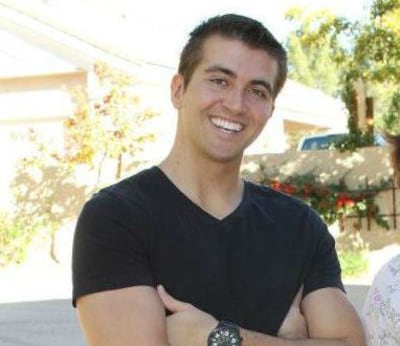SALT LAKE CITY — A Utah man who raked in millions of dollars making fentanyl-laced painkillers in his basement and selling the pills on the darknet, including some that prosecutors say caused an overdose death, likely won’t ever see the outside of a prison cell.
A 12-person federal jury found Aaron Shamo, 29, guilty Friday of 12 of 13 charges, including continuing a criminal enterprise. That count carries a mandatory life sentence.
Jurors didn’t make a decision on whether Shamo sold drugs that resulted in the death of a 21-year-old California man.

U.S. Attorney John Huber said Shamo led a highly profitable organization that delivered counterfeit pills to every state in the country.
“Though his customers remained faceless on the darknet, their despair was real. Shamo profited off that despair and a jury of his peers has held him accountable,” he said in a statement.
Shamo remained stoic at the reading of the verdict, as he had throughout the three-week trial in U.S. District Court.
“The government wanted him to die in prison and they got their wish,” defense attorney Greg Skordas said afterward. He said it’s unfair that Shamo will spend life in a cell when his six co-defendants, who cut pleas deal with the government and testified for the prosecution, will do little or no time behind bars.
Shamo’s parents, Mike and Becky Shamo, were in the courtroom every day during the trial. They declined to comment after the verdict.

Prosecutors described Shamo as the self-made “pharma master” who ran a drug trafficking operation that made and sold counterfeit Xanax and fake oxycodone laced with fentanyl on the darknet. They argued that one sale resulted in the overdose death Ruslan Klyuev, of Daly City, California.
Assistant U.S. attorney Vernon Stejskal said Klyuev — who died with alcohol, cocaine metabolites and deworming medication (used to cut cocaine) in his system — wasn’t responsible for his death “and Mr. Shamo is. But it was difficult for the jury to come to that conclusion given all the complicated circumstances.”
Shamo was a “goofy kid” who other members of the organization played for a fool and who prosecutors made the “fall guy,” Skordas said. He argued that Shamo wasn’t the kingpin of the operation and didn’t cause anyone’s death.
Stejskal said “fall guy” isn’t a fair term. He said the evidence clearly showed, and the jury found, that Shamo was the principle administrator, organizer and leader of the operation.
“He is the only one culpable for the continuing criminal enterprise,” he said.
Shamo, who prosecutors say employed as many as 20 people, made powerful painkillers and shipped them to customers around the country who bought them on the darknet. He made millions of dollars from sales of fake oxycodone laced with fentanyl from China and counterfeit Xanax tablets.
Shamo did extensive online research on fentanyl, pill presses, punches and dyes, ingredients, selling on the darknet, how to make and ship drugs, and money laundering, the prosecutor said. He “tested” the pills on customers and obsessed about getting feedback in what were “basically human trials,” Stejskal said in his closing argument Thursday.
In November 2016, after conducting surveillance on Shamo for weeks, the federal Drug Enforcement Administration and local police raided his Cottonwood Heights home where they seized $1.2 million in cash from a sock drawer. He had another $429,000 stashed at his parents’ house. Shamo was pressing Xanax pills in his basement at the time of his arrest.
Agents also later seized 513 bitcoins from Shamo’s online wallet, valued at an estimated $2.4 million.
“Aaron Shamo knew the nation was on fire with opioids and he poured fuel on the flames, over and over and over, never getting burned himself, but causing pain and misery wherever his fire spread,” Stejskal said in court, adding Shamo “could be considered the face of the opioid epidemic.”
Skordas said the timing of Shamo’s case couldn’t have been worse with the opioid crisis and fentanyl being so prominent in the drug trade. Ten years ago or five years from now, his actions would result in a 10- or 20-year sentence, he said.
“The politics behind this prosecution was just horrible, but it’s a product of our time,” Skordas said.
Stejskal said the case was “not at all” about politics, but about Shamo shipping a half million fake oxycodone pills to every state in the country.
“This was about Mr. Shamo. This had nothing to do with politics,” he said.
In addition to continuing a criminal enterprise, the jury found Shamo guilty of three counts of importation of a controlled substance; possession of a controlled substance with intent to distribute; manufacture of a controlled substance; adulteration of drugs while held for sale; use of the U.S. mail in furtherance of drug trafficking offense; money laundering; money laundering promotion and concealment; and engaging in monetary transactions in property derived from unlawful activity.
Judge Dale Kimball scheduled a Dec. 3 sentencing hearing.
Shamo has been held in jail since his arrest. Sentencing for the other six defendants was deferred until after the trial.


